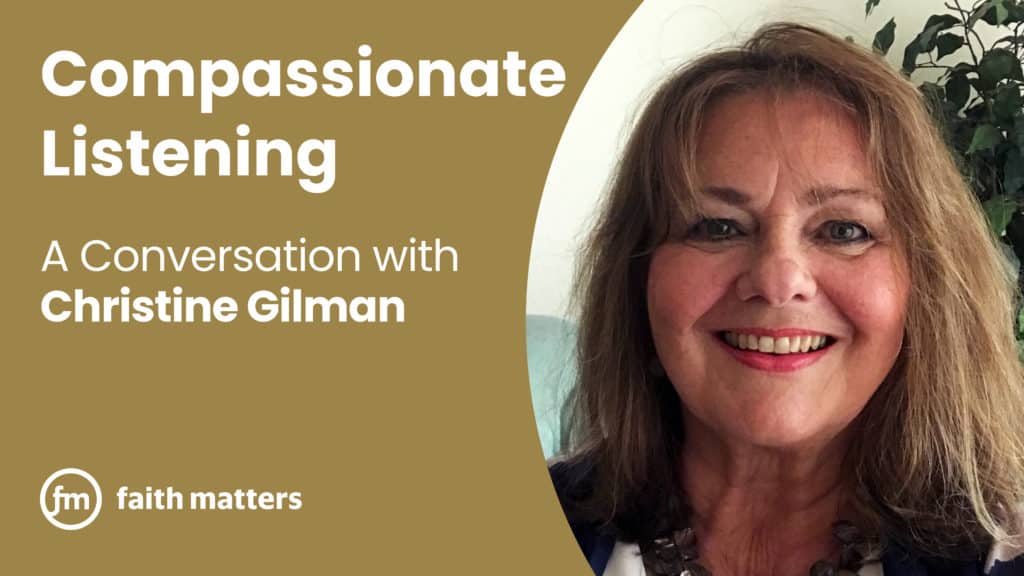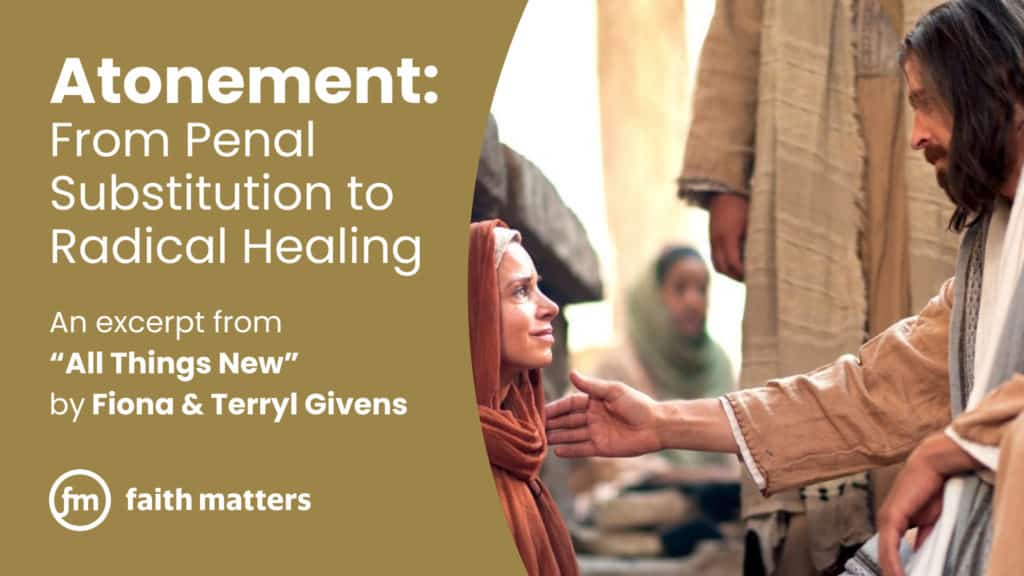(From a Christmas message given by Patrick Mason, December 19, 2021)
When you consider that literally billions of Christians have told and retold the story of Jesus Christ’s birth over the course of nearly two millennia, it’s remarkable how we keep wringing meaning from a story that in its purest form consists of less than twenty verses of scripture—few enough to fit on one printed page.
Think about what we know about the first Christmas. We have four different Gospel accounts in the New Testament, each of them with a different take.
Mark just wants to get to the action. Babies don’t do much, so he skips right to the wild man John the Baptist preaching in the desert. No angels, or shepherds, or wise men, or star, or manger, or even virgin Mary.
Matthew, who otherwise bases much of his account on Mark’s Gospel, does add the story of Christ’s nativity. He starts with one of Jesus’s genealogies. Frankly, this is kind of a boring way to start a book, but there are some gems in those first seventeen verses of the New Testament. We learn that Jesus is descended from all kinds of luminaries like Abraham, Isaac, Jacob, David, and Solomon. But included in that list are also Tamar and Rahab. I won’t get into their whole stories here; let’s just say that I won’t be encouraging my daughters to follow in Rahab’s professional footsteps. But when you read the stories of Tamar and Rahab, and then you understand that they will be ancestors of the Messiah, you realize two powerful truths.
First, our God is a God of surprises. He doesn’t always write the script in the way that we would. He doesn’t seem to be troubled by the fact that this mortal life can get awfully messy. Why not? Because, and here’s the second lesson, God can turn anything to good. No matter who you are, no matter what you have done or what has been done to you, God can make it right. We may not always see it right away—it may not even happen when and where we can see it—but God is in the business of redeeming history, and redeeming humanity.
This is the lesson that we get in the last half of the opening chapter of Matthew, which introduces us to Mary and Joseph. Now, I love the way that throughout Matthew’s Gospel he shows Jesus to be the fulfillment of all the Jewish law and prophets. But in this first chapter he’s so focused on Joseph as the heir of David’s throne that he centers the story of the birth of Jesus not on mother and child but rather on the dad who isn’t even really the dad. Even so, I love what Matthew tells us about noble Joseph. I love his heart of compassion and mercy, I love his listening ear, I love his steadfastness, I love his desire to protect. And I love that the angel who visits Joseph gives the same message to him that the angel will later give to Mary and then to the shepherds: “Fear not.”((Matt. 1:20.)) Why? Because, as we have learned, God can make it all right.
John, the author of the fourth Gospel, wants to turn everything into high theology. This leads to beautiful and profound insights throughout his Gospel, but it’s not always cute and cuddly. It’s tough to gather your children and grandchildren around on Christmas Eve and have them act out “In the beginning was the Word, and the Word was with God, and the Word was God.”((John 1:1.)) I mean, where’s the donkey and the sheep?
I love theology, but I think there can be some danger in wanting to turn everything into high theology. About twenty years ago, when I was a graduate student, for some reason I was called to be the ward activity leader. It was a terrible calling for me. Of the gifts and talents God gave me, party planning is definitely not one of them. On top of that, I was full of all kinds of righteous zeal. When it came time for the ward Christmas party, I decided that we would have a purely spiritual celebration, focusing on the birth of the Savior, and absolutely not include any secular nonsense like Santa Claus. Well, there was one woman on the activities committee who had a bunch of little kids at home and whose husband was a medical resident—meaning that he worked upwards of 100 hours per week and they never saw him. She was clearly just barely hanging on. She stopped me in the hallway at church one Sunday and asked whether Santa might possibly make a quick visit to the party so her kids could see him. With all the authority vested in me as a 20-something ward activities chairperson, I put my foot down and said no. She broke down crying. This poor woman, who was absolutely at the end of her rope—all she wanted was for her kids to experience some of the magic of the Christmas season. She didn’t want to take Christ out of Christmas. I was so busy focusing on “the Word…made flesh”((John 1:14.)) that I forgot what the angel said in Luke’s account, that this should be a season of bringing “good tidings of great joy…to all people.”((Luke 2:10.))
So that brings us to Luke, precious Luke. Of all the four Gospels, each with their different perspective and emphasis, Luke understands that the story of God’s people is ultimately about people. And not just the high and mighty people. Think about the characters we’re introduced to just in the first two chapters of Luke: an infertile couple, an unwed pregnant teen, the working poor outside the city gates, several women, the elderly, and most of all a helpless, voiceless baby. God’s story is told not through the rich and powerful and educated, but through the meek and lowly and vulnerable. More than any other Gospel—far more than Matthew’s Davidic Messiah or John’s great I Am—Luke gives us a portrait of divine vulnerability. A god wrapped in swaddling clothes. A god who will bleed from every pore.
He came down to earth from heaven
Who is God and Lord of all,
And his shelter was a stable,
And his cradle was a stall;
With the poor, and mean, and lowly,
Lived on earth our Savior holy.((“Once in Royal David’s City,” Hymns #205.))
Even with all the multitude of Christmas carols, and poems, and novels, and plays, and videos, nothing ever written celebrating the birth of the Savior can compare to Luke’s simple telling:
And it came to pass in those days, that there went out a decree from Caesar Augustus that all the world should be taxed. . . .
And all went to be taxed, every one into his own city.
And Joseph also went up from Galilee, out of the city of Nazareth, into Judaea, unto the city of David, which is called Bethlehem; (because he was of the house and lineage of David:)
To be taxed with Mary his espoused wife, being great with child.
And so it was, that, while they were there, the days were accomplished that she should be delivered.
And she brought forth her firstborn son, and wrapped him in swaddling clothes, and laid him in a manger; because there was no room for them in the inn.
And there were in the same country shepherds abiding in the field, keeping watch over their flock by night.
And, lo, the angel of the Lord came upon them, and the glory of the Lord shone round about them: and they were sore afraid.
And the angel said unto them, Fear not: for, behold, I bring you good tidings of great joy, which shall be to all people.
For unto you is born this day in the city of David a Saviour, which is Christ the Lord.
And this shall be a sign unto you; Ye shall find the babe wrapped in swaddling clothes, lying in a manger.
And suddenly there was with the angel a multitude of the heavenly host praising God, and saying,
Glory to God in the highest, and on earth peace, good will toward men.
And it came to pass, as the angels were gone away from them into heaven, the shepherds said one to another, Let us now go even unto Bethlehem, and see this thing which is come to pass, which the Lord hath made known unto us.
And they came with haste, and found Mary, and Joseph, and the babe lying in a manger.
And when they had seen it, they made known abroad the saying which was told them concerning this child.
And all they that heard it wondered at those things which were told them by the shepherds.
But Mary kept all these things, and pondered them in her heart.
And the shepherds returned, glorifying and praising God for all the things that they had heard and seen, as it was told unto them.((Luke 2:1-20.))
When I hear that remarkable story, I’m reminded of the line spoken by Nicodemus in the first episode of the TV series “The Chosen.” Troubled by his encounter with Mary Magdalene, this powerful rabbi, who is supposed to have all the answers, quietly asks his wife, “What if we’re not seeing the whole picture? What if [God’s work is] more beautiful and more strange than we can ever imagine?”((“I Have Called You by Name,” The Chosen, Season 1, Episode 1.))
Because we have heard the nativity story so many times, we can have a tendency to forget just how beautiful and strange it is. First, the hero of the story—Jesus—doesn’t do anything. He just lies there. This is perhaps the point that the other Gospel writers were making in not making much of this story—that Jesus’s birth matters only in the context of what will happen three decades later: his ministry, example, atonement, death, and resurrection. Without all that, he’s just another baby who can’t even move his arms. Of course, there’s the beautiful and strange matter of the virgin birth. And a new star whose light appears precisely on that night—a truly beautiful and strange bit of cosmic timing on God’s part. But also the angel telling a bunch of dirty, smelly shepherds to go visit a newborn baby, when I’m sure all Mary really wanted was a nap. At the very least, the angel could have told them to wash their hands first.
The Christmas story is beautiful in part because we can see our own beautiful and strange lives reflected in it. This is a story you can relate to, because you are already part of it. You have been the mother, suffering and bleeding to bring life into the world. Or you have been the father, standing by watching, hoping and (frankly) helpless. Or you have been the friend, bringing gifts and adoration, joyful that new life has brought new hope. Or you have been the childless individual or couple, praying and desperately waiting and doing good in the meantime. Or you have been the one on the outskirts of society, simply minding your own business until God appeared in your life and told you that you were an integral part of the greatest story ever told. Or you have been the elderly server in the temple, diligently attending your duties while you wait for the day when you will behold the face of the Lord. Most of all, each of you has been the baby, whose birth brought unspeakable joy, whose coming brought endless possibilities for good, whose arrival issued into the world a new story that had never been told.
In the midst of all these other beautiful and strange moments associated with Christ’s birth comes the moment when “with the angel a multitude of the heavenly host [appeared] praising God, and saying, Glory to God in the highest, and on earth peace, good will toward men.”((Luke 2:14.))
This is beautiful, to be sure, but also exceedingly strange. Because reading it two thousand years later, with the benefit of hindsight, it seems that the heavenly host was wrong. Jesus’s birth did not, as it turns out, bring peace on earth—in his day or ours. The confusion around this strange pronouncement of peace on earth was perhaps best captured by the poet Henry Wadsworth Longfellow:
I heard the bells on Christmas day
Their old familiar carols play,
And wild and sweet the words repeat
Of peace on earth, good will to men.
I thought how, as the day had come,
The belfries of all Christendom
Had rolled along th’unbroken song
Of peace on earth, good will to men.
And in despair I bowed my head:
“There is no peace on earth,” I said,
“For hate is strong and mocks the song
Of peace on earth, good will to men.”((Henry Wadsworth Longfellow, “Christmas Bells.”))
A contemporary Longfellow could easily have written those lyrics in 2021. This is a day when people “are without affection.”((Moses 7:33.)) This is a world full of those who engineer and profit from the spread of fear. This is an age, as Jesus prophesied, of “famines, and pestilences, and earthquakes.” There are “wars and rumors of wars.” There are “false prophets” who “deceive many.” So many are offended, and “betray one another.” Love waxes cold, and too many of our sisters and brothers “hate one another.”((Matt. 24:6-12.))
But what did the angel say to Mary, and to Joseph, and to the shepherds? “Fear not.” “Be not afraid”: Jesus said it repeatedly.((Luke 2:10.)) By one count, there are 365 biblical passages—exactly one for every day of the year—that command us not to be afraid in the face of the seemingly overwhelming forces that surround us.((Jim Wallis, “Be Not Afraid,” Sojourners, 20 Dec. 2018, https://sojo.net/articles/be-not-afraid-0.)) There is so much to be afraid of. What can possibly stand against the tidal wave of fear and deception and hate we find ourselves drowning in?
Then pealed the bells more loud and deep:
“God is not dead, nor doth he sleep;
The wrong shall fail, the right prevail,
With peace on earth, good will to men.”((Longfellow, “Christmas Bells.”))
This is the beautiful and strange heart of the Christian’s proclamation to the world. The belief that “God is not dead, nor doth he sleep.” The belief that “the wrong shall fail, the right prevail.” The belief that “a virgin shall be with child, and shall bring forth a son, and they shall call his name Emmanuel, which being interpreted is, God with us.”((Matt. 1:23.)) The belief that “If God be for us, who can be against us?”((Rom. 8:31.)) The belief that “In the world ye shall have tribulation: but be of good cheer; [Jesus, the babe of Bethlehem, has] overcome the world.”((John 16:33.))
It’s easy to become resigned in the face of fear and hate and violence, to share the sentiment of the narrator in Bruce Springsteen’s song “Nebraska,” who flatly observes, “I guess there’s just a meanness in this world.”((Bruce Springsteen, “Nebraska,” Nebraska (Columbia Records, 1982).)) Indeed, there is. As Christians, we are neither naïve nor blind to human depravity and suffering. But then, neither was Jesus—an innocent victim of fear and hate and violence. God sent his Son not to condemn us, but to shine a light into the darkness, to offer salvation for both our souls and our societies. Jesus is the embodiment of the “perfect love [that] casteth out fear.” He proclaims peace to those near and far, and calls his followers to do the same.((1 John 4:18.))
Followers of Jesus believe, with President Russell M. Nelson, that “peace is possible” in this tired world, and that we are “in a pivotal position to emerge as peacemakers.”((Russell M. Nelson, “Blessed Are the Peacemakers,” Ensign, Nov. 2002.)) Followers of Jesus affirm, with Elder Dieter F. Uchtdorf, that we are called to “clearly speak out for peace” and to become a “people of peace and reconciliation.”((Valerie Johnson, “Elder Uchtdorf encourages all to become ‘a people of peace and reconciliation’ during Volkstrauertag event,” Church News, 18 Nov. 2019.))
And so perhaps “peace on earth, good will toward all” was less a declaration than an invitation. In a world of fear and deception and anger, this Christmas the heavenly host calls on you and I not to respond in kind, but rather to do something more beautiful and strange. Whether it be on social media, or in the workplace, or stuck in traffic on Main Street, or with a wayward child, or with that relative that you dread seeing on Christmas Eve, the advent of Jesus in the world is a call to each of us to also be the advent of something new and beautiful and strange in our world. The heavenly host, and the God whom they praised, invite us to be messengers of love. To have hope. To share hope. To be kind. To forgive. To show grace. To find joy. To spread joy. To believe. To be generous. To suffer long. To proclaim peace. To love, to love, to love.
Sisters and brothers, God is not dead. He does not sleep. The wrong shall fail, the right prevail. Jesus has overcome the world. Light and life to all he brings, ris’n with healing in his wings. Joy to the world, the Lord is come! Let every heart prepare him room.





